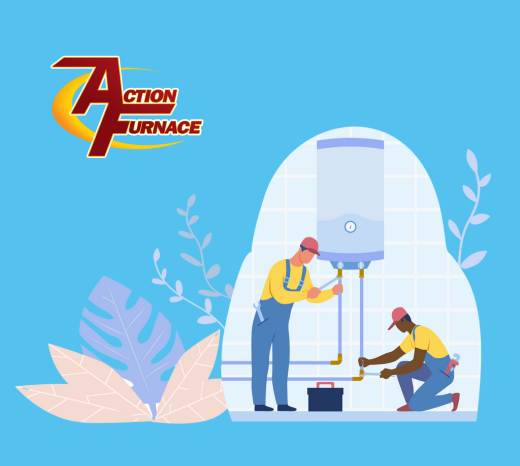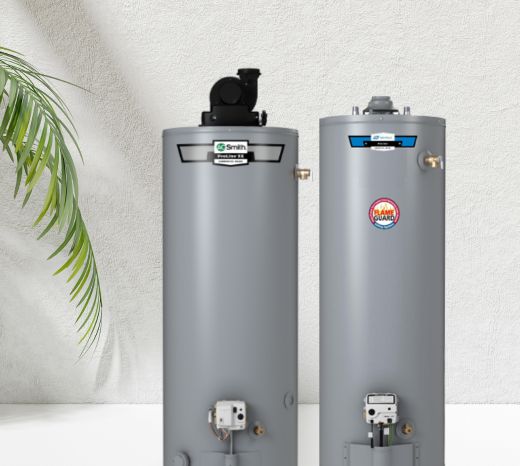While you may not think about your water heater very much, it is an unsung hero. Your water heater is important for your comfort, but it also keeps ...
While you may not think about your water heater very much, it is an unsung hero. Your water heater is important for your comfort, but it also keeps your major appliances running smoothly. Should your water heater find itself in need of repair, it can be a real headache.
So when can you turn off your water heater? Why would you need to turn it off? Is it safe? These questions come up from time to time. Read on for answers to these questions and to learn how to turn off your water heater safely.
If you have a water heater emergency and need immediate assistance, call our experts at Action Furnace. We answer the phone 24 hours, 7 days a week.
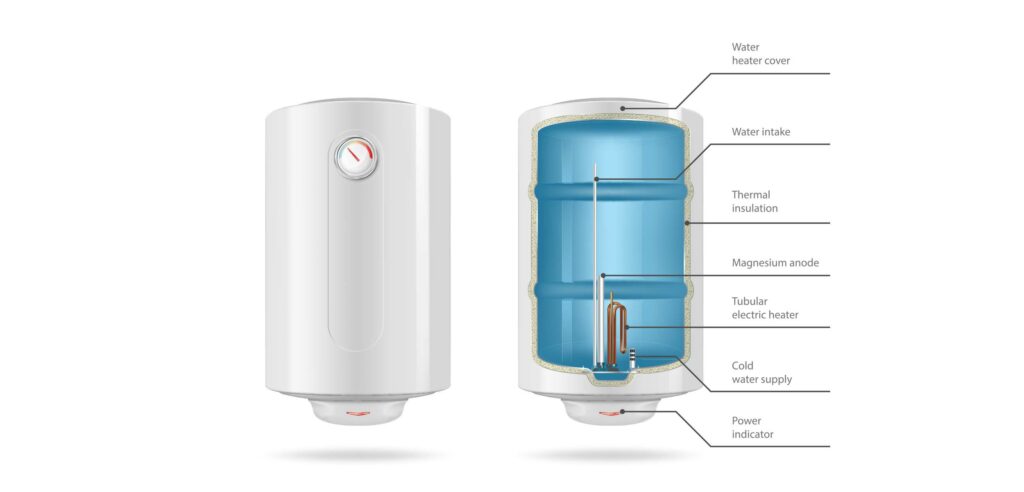
How Your Water Heater Works
In a tank-type water heater, cold water travels from the main water supply, through a dip tube, and into a tank in your house. The water is heated by either a gas flame or an electric element that is actually inside the tank. The temperature is controlled by a thermostat, which you can adjust to your preference.
As the water heats, it rises to the top of the tank and exits through a heat-out pipe when hot water is needed somewhere in the household. A tank-type water heater continues to intake and heat cold water as you need it.
There is a pressure relief valve on every tank-type water heater. It’s there to ensure that pressure buildup cannot exceed safe limits. This part of the system is critical, as it prevents the tank from bursting and flooding your home.
What Happens When You Turn Off Your Water Heater?
There are some reasons you may want or need to turn off your water heater. We’ll learn about those next. When you turn your tank water heater off, the water inside the tank cools. Turning off the water intake will prevent the tank from refilling with new water.
Eventually, you will no longer have a hot water supply in your home. No more hot showers, and your dishwasher and laundry machine may not function the same.
Reasons You Might Turn Off Your Water Heater
Although it doesn’t come up very often, there are a few scenarios where you might be considering turning off your water heater. If your tank water heater is being replaced, this is a necessary step. Here are some other motives for turning off the tank.

You’re Going On Vacation
Some people prefer to turn the main water supply off when they go on vacation to reduce the risk of flooding. It’s a pretty smart move, especially if you’ll be away for an extended period. Ifyou’re considering turning off your water heater while on vacation, you absolutely can—but it isn’t necessary.
Here are the reasons why:
1. Most modern water heaters have a vacation or “VAC” setting on them for this exact purpose.
2. You may save a tiny amount on your gas or electric bill, but the cost of reheating the water will likely make up the difference.
3. Having hot water on demand helps prevent your pipes from freezing. Be wary of turning off your hot water tank in very cold weather.
Your Tank is Empty
If your hot water tank is empty and is not going to be refilled right away, you should turn off your water heater. This will prevent the tank from taking any damage from excessive heat buildup while it’s empty.
There are a couple of common reasons your hot water tank would be empty. It could be leaking, which you will know by the puddle of water on the ground. It could also be that the main water supply is shut off, therefore you have no water pressure to your tank.
You will know that the main water supply is shut off because there will be no water pressure anywhere in the house. This is often due to road work and other infrastructural events happening in your area.
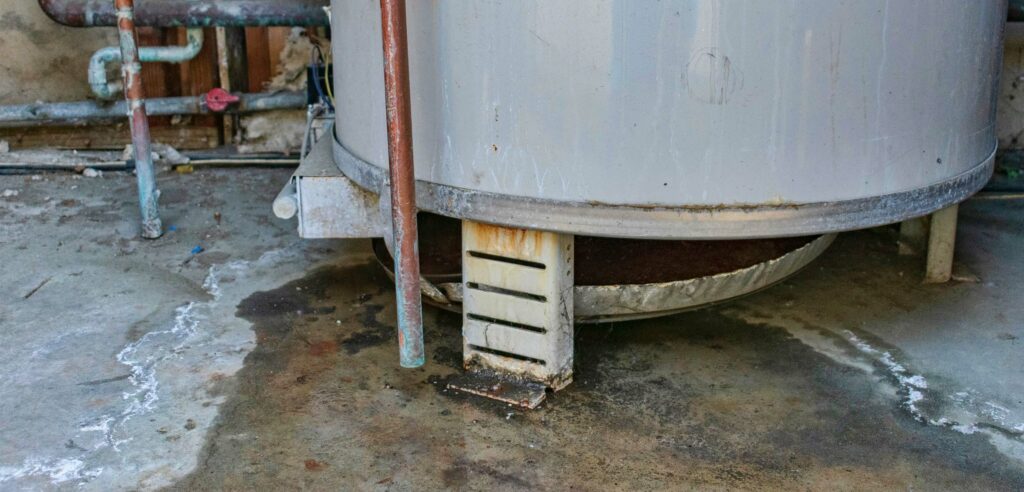
Your Hot Water Tank is Leaking
A leak in your hot water tank presents an obvious risk of flooding, especially if it’s left unattended. Though it can also be a sign that something more serious is going on. In some cases, it can be an indicator that the pressure regulation or the relief valve in your tank is malfunctioning.
See also: The Complete Guide to Basic Hot Water Heater Maintenance
If too much pressure builds inside the tank with no relief, it can eventually burst. A burst hot water tank can cause catastrophic damage and can be dangerous for any person or animal in theimmediate area. If you have a leak, the best course of action is to turn the water heater off and call a professional technician.
If you don’t believe it, Mythbusters experimented with a bursting hot water tank years ago. If you missed it, watch the clip here.
Is Turning Off The Water Heater Energy-Efficient?
Turning off your water heater may seem ideal if you’re hoping to save a bit on your gas or electric bill, but this isn’t always the case. If you’re away from the house for more than two weeks, sure. In that case, you may optimistically save five percent on your next bill.
Something you’ll want to avoid is constantly turning the water heater off and on. Doing this daily will not result in savings and could even end up costing you more due to the extra energy it takes to reheat the water. Not to mention the potential damage that can be caused by the frequent temperature changes the water heater is going through.
One option is a water heater timer, which can be set to ensure hot water is ready at peak usage times. Some can even be controlled with your smartphone and have data comparisons with previous months. This way you’ll be able to track just how much you’re saving (or not saving) on your hot water usage.
How to Turn Off Your Water Heater
If a situation should arise where you need to turn off your water heater, it’s good to know exactly how to do that. While there may be an “on/off” switch, there are a few steps you should take to make sure that it’s been turned off safely.
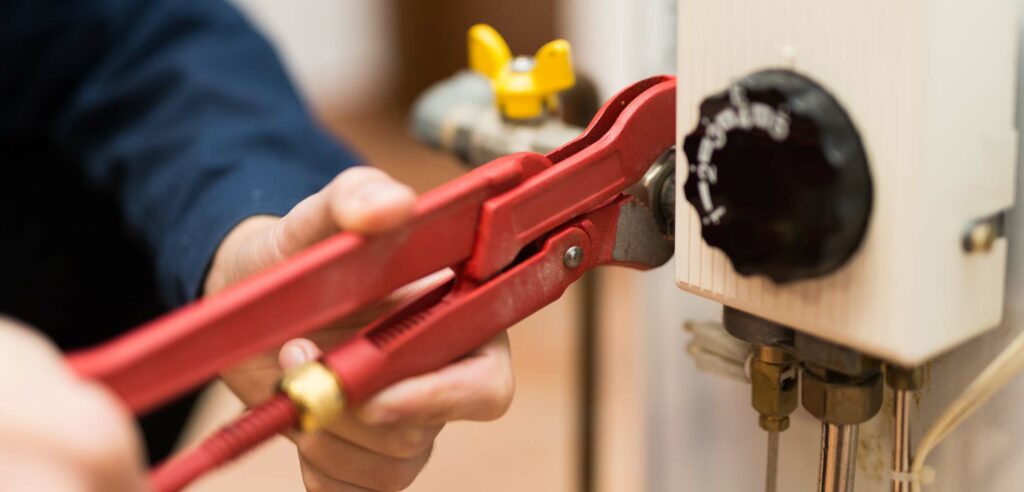
Make Sure the Power Source is Disconnected
If you have an electric unit, you’ll need to turn off the circuit breaker that is connected to the water boiler. For a gas unit, turn the temperature dial all the way down to the “off” position. Confirm the gas is off by making sure the pilot light is no longer lit.
Turn Off the Water Supply
The water supply pipe going to your water heater will have a valve on it. With any luck, it will be labelled clearly with “on/off” positions. Ensure it is in the “off” position; this will be a clockwise turn. With a gas unit, you will also need to shut off the gas supply.
Drain the Tank
There will be a drain valve at the bottom of your water heater’s tank. Attach a hose to the valve and direct the hose to a floor drain, tub, or sink. You can also drain to a bucket, although that will require multiple trips to the tub with a full bucket of water. Opening a hot water faucet elsewhere in the house will help the water drain. Be careful and remember that the water is very hot!
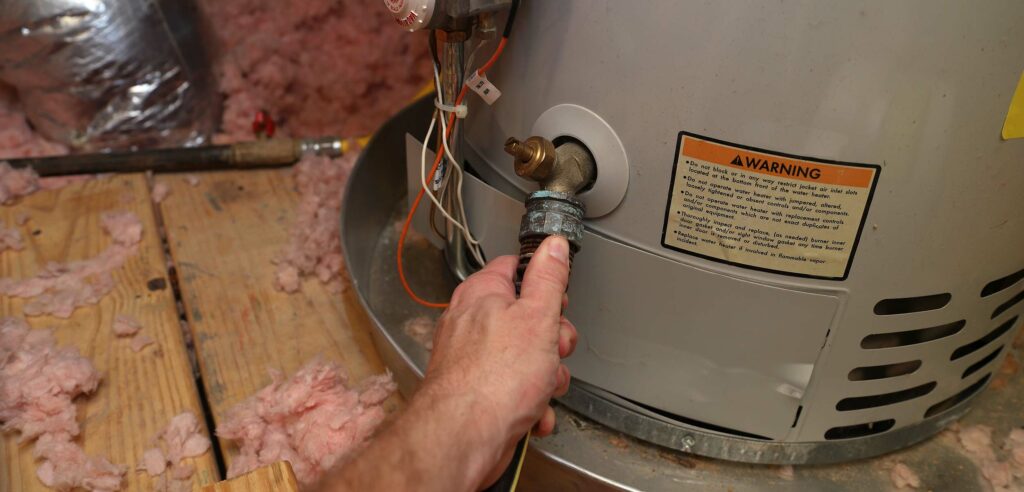
Turn Off the Relief Valve
The final step is to turn off the relief valve. It is normally located close to the top of the water boiler although you can refer to your owner’s manual to be certain. Turn the relief valve to the “off” position. This will allow air into the tank.
Now your water heater is turned off! It may be worth going through a practice run to make sure you know where the valves and water/gas supply lines are. This way, in the event of a leak, strange noise, or even just regular maintenance, you’ll know just what to do.
Avoid Having to Turn Off the Taps
Generally, it's best to keep your water tank full and heated throughout the year. You can turn off your water heater when it is done safely, but only do this when you have a problem or if the tank won’t be heated anytime soon. Turning off your water heater to save on energy bills is not usually recommended.
A well-maintained water heater is a key to keeping your water system running smooth, and avoiding any untimely issues. Annual maintenance with Action Furnace will ensure that your water heater is firing on all cylinders and alert you to any potential problems before they happen unexpectedly.
Give us a call for a professional inspection on your water heater’s relief valve, heating elements, and overall performance.


